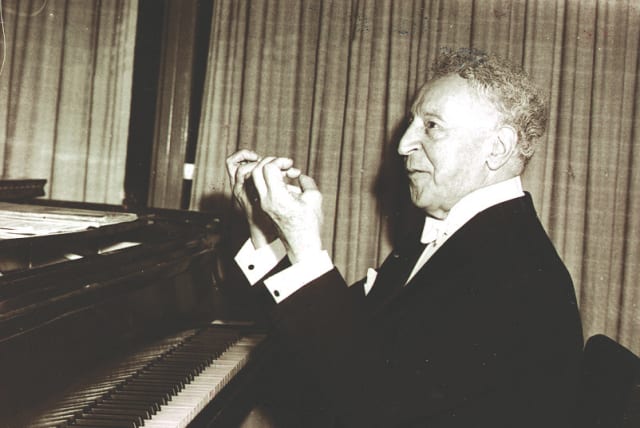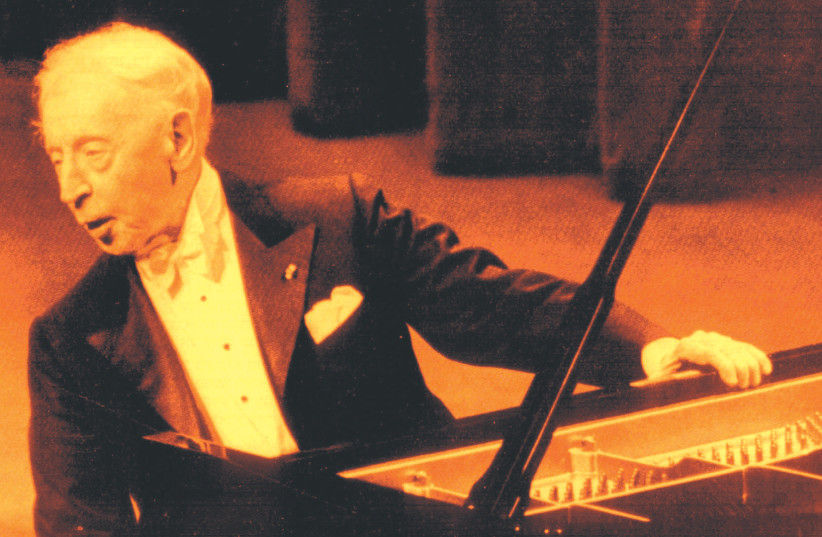Arthur Rubinstein International Piano Master Competition is back for 17th edition

This year’s edition features 36 contestants, aged 18-32, from 18 countries. The lineup reflects that broad spread of genes, cultural baggage and citizenship.
Many an artistic director, of some new arts venture, has proclaimed at the genesis that they are “starting a new tradition.” That is a strange idea. Isn’t a tradition something that emerges over time? You can’t really attach that epithet to an event until you’ve paid your chronological dues.
When it comes to accumulating the requisite street cred there are few cultural outfits in this part of the world better qualified than the Arthur Rubinstein International Piano Master Competition. The triennial contest takes place, for the 17th time, in Tel Aviv, through March 31. It opened Tuesday with a gala concert and an exclusively Rachmaninoff repertoire, with competition stages scheduled for the Tel Aviv Museum and Tel Aviv’s Charles Bronfman Auditorium.
150th anniversary of the composer's birth
This year marks the 150th anniversary of the Russian Romantic composer’s birth, and 80 years since his death, four days short of his 70th birthday. Hence the inclusion of some of his works in the current program.
“He is a composer I greatly admire,” says artistic director Ariel Cohen, who has been at the helm since June 2020. Rachmaninoff also fits the instrumental bill. “He was undoubtedly one of the most prominent composers for the piano,” Cohen continues. “He wrote for all sorts of instruments, but his works for the piano were the core of his compositional oeuvre.”
Rachmaninoff also trends to draw the crowds.
“He has some melodies that are unmistakable. They are instantly recognizable,” Cohen notes.
He could have added that some of the Russian’s airs eventually even found their way into mainstream commercial music. American singer-songwriter Eric Carmen, for example, based his hit single “All By Myself” on parts of the second movement of Sergei Rachmaninoff’s Piano Concerto No. 2 in C minor, selling over one million copies of the 1975 release.
But, naturally, the Rubinstein Competition, which began back in 1974, is a purely classical affair. The gala curtain raiser takes place at the Cameri Theater in Tel Aviv, with a glittering cast of keyboardists, including 2021 edition winner 29-year-old Spanish pianist Juan Perez Floristan; Chinese counterpart Cunmo Yin, who placed third last time out; and Georgian 1995 winner Alexander Korsantia.
This year’s edition features 36 contestants, aged 18-32, from 18 countries. Much has been said, and written, about the increasing number of top performers from Asian countries, but Cohen is not so sure that is particularly noteworthy.
“Yes, you get gifted musicians coming out of Asians all the time,” he says. “The thing is, it is not so clear these days what Asian really means. And it’s not just us [Israelis].
“The World Federation of International Music Competitions spends a lot of time talking about denationalization. That means stopping relating to the country of birth as something sacrosanct. You can see someone with, for example, an Australian passport but, in fact, they are Chinese, or someone with an American passport, but they are Korean.”
Cohen might have cited Daniel Barenboim. The stellar pianist and composer spent the first 10 years of his life in Argentina, before making aliyah with his pianist parents, and is a longtime resident of Berlin. “There are some who identify strongly with the country in which they live, even though they don’t hold the passport, and there are others who feel attached to their country of origin even though they have been living somewhere else for a long time.” That is not an alien idea for many olim.
THE LINEUP for this year’s competition reflects that broad spread of genes, cultural baggage and citizenship. “There are quite a few Europeans, and there is one Moroccan, which we are very happy about,” Cohen notes. That surprising welcome inclusion refers to 24-year-old now Paris-based Nour Ayadi.
We also have good reason to – pardon the instrumental pun – blow our own trumpet. “There are five Israelis this year,” says Cohen. “That’s quite a lot. I can’t remember the last time we had so many.”
The applicants for this year’s competition came from far and wide, and in their droves. “We received hundreds of submissions. The quantity of high-quality registrants was astounding,” he says. “We normally choose between 32 and 35 competitors. We selected 39, although three dropped out; there are always cancellations.”
The jurists, under the seasoned stewardship of 86-year-old Israel Prize laureate pianist, conductor and educator Arie Vardi, clearly had their work cut out for them. The adjudicators are a stellar classical music bunch, including Emile Naoumoff from Bulgaria; Canadian pianist Janina Fialkowska, who placed third in the 1974 inaugural Rubinstein competition; British musician and educator Ronan O’Hara; and Taiseer Elias.
The latter – an acknowledged leader of the Middle Eastern music scene as a violinist and oud player – will probably surprise most of us. Then again, as many a top professional will tell you – not at all simplistically – music is music.
“Taiseer was a jury member in the previous edition, and we were so delighted with him,” Cohen explains. “He lives in both [Eastern and Western] worlds. I spoke to him about and he said that, really, it is not two different worlds. It is about producing sounds. He sees the common ground between the two areas.
“Of course, there are differences, but Taiseer can clearly show how each impacts on the other, and how he comfortably occupies both worlds.” Indeed. Elias currently serves as head of the Music Department at the University of Haifa.
Cohen, who has been associated with the competition, in one guise or another, since its advent is also the best person to ask about any changes the event, and the logistics thereof, have undergone over the past close to half century.
“On the one hand, we try to preserve the traditions, and the ways in which things were administered. But we live in a changing world.” That applies to the nuts and bolts, too. “In the old days, applications were sent in on paper. Now it is all online.”
THE RUBINSTEIN competition jurists also try to keep an open mind, and look at the individual bigger picture. “We look at the entrants’ record,” Cohen says. “We look at their education, the reviews they attracted, the performances they have given and the competition they have won. In contrast with other competitions we don’t require them to send in recordings.”
Then again, in the age of YouTube, that does not constitute a problem. “There are sometimes applicants who are gifted pianists but don’t look good in their CVs. In such cases, we listen to their playing. We don’t want to miss out on talent because of an unimpressive bio.”
The competition also helps get the word out about local creative endeavors, with works written by Israeli composers forming part and parcel of the performance requirements. This year, contestants will play charts by 55-year-old Yaron Gottfried, 37-year-old Tal Haim Samnon, or Latvian-born Marc Lavry, who died in 1967. The latter is an all-embracing case in point. The German-trained composer made a name for himself for work that merged Middle Eastern textures with classical European material.
Over the past 49 years, the event has not only produced celebrated pianists, it has also nurtured a loyal and involved following. “We have an enthused and avid audience,” Cohen chuckles. “They have all these debates about which contestant is the best, and all in a good spirit.” That, he says, rubs off on the musicians. “There is such a warm ambiance. The contestants feel that.”
For tickets and more information: (054) 760-6525 and www.arims.org.il
Jerusalem Post Store
`; document.getElementById("linkPremium").innerHTML = cont; var divWithLink = document.getElementById("premium-link"); if (divWithLink !== null && divWithLink !== 'undefined') { divWithLink.style.border = "solid 1px #cb0f3e"; divWithLink.style.textAlign = "center"; divWithLink.style.marginBottom = "15px"; divWithLink.style.marginTop = "15px"; divWithLink.style.width = "100%"; divWithLink.style.backgroundColor = "#122952"; divWithLink.style.color = "#ffffff"; divWithLink.style.lineHeight = "1.5"; } } (function (v, i) { });

